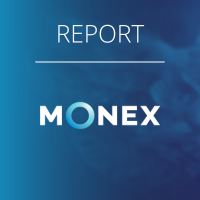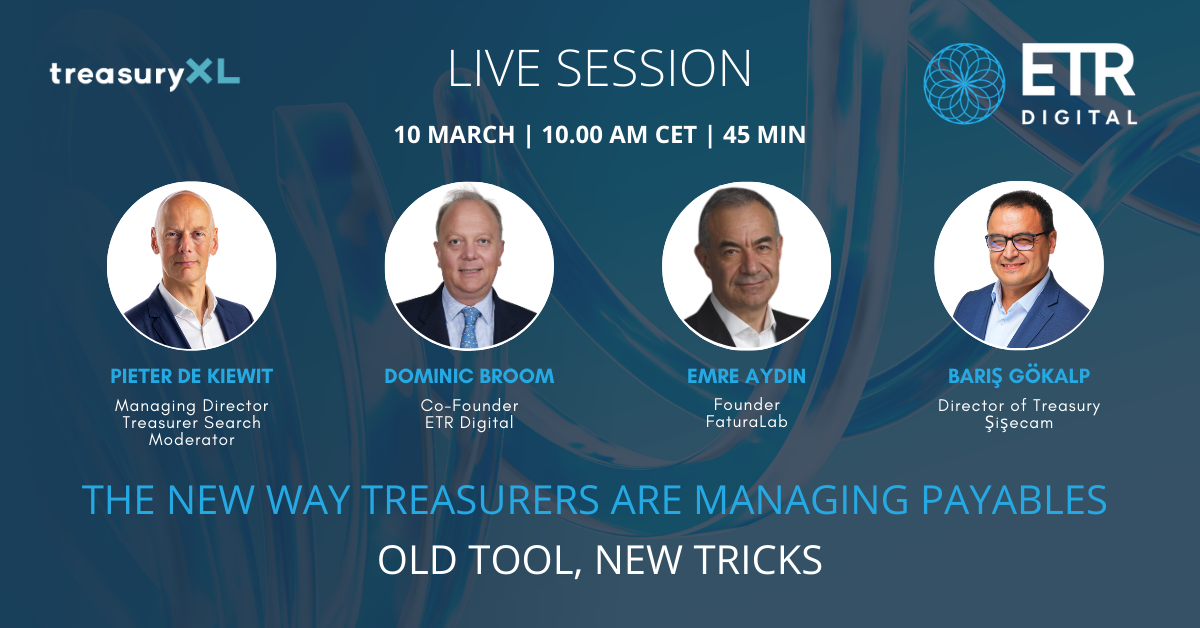Recently a growing number of blogs and articles have been published focussing on the increased adoption of blockchain technology and cryptocurrencies in Africa especially in Sub Saharan Africa. According to these reports Africa is the fastest-growing cryptocurrency market among developing economies
This is driven by crypto friendly regulation in a number of African countries, dynamic demographics, rapid mobile phone penetration, and an ongoing push for financial inclusion. From cross-border remittances to digital identity management, blockchain-powered solutions are beginning to reshape industries and empower communities across the African continent.
Cryptocurrency adoption in Africa: present state
The adoption of cryptocurrency across African countries has experienced remarkable growth in recent years, driven by the combination of various socio-economic factors, unique economic challenges and technological innovation. According to a report from Consensys (2024) cryptocurrency adoption in Sub-Saharan Africa received an estimated $125 billion in on-chain value in 2024. Africa accounted for over 5% of global cryptocurrency transaction volume.
Countries like Nigeria and South Africa are leading the way in trading volumes, peer-to-peer transactions, and blockchain-based solutions. These countries are benefiting from progressive regulatory efforts and high engagement levels, resulting in rapid adoption of crypto as a complement to traditional finance systems. Nigeria ranks second globally on the Global Crypto Adoption Index, receiving approximately US$59 billion in cryptocurrency value from July 2023 to June 2024, while also Kenya (21st), Ghana (29th) and South Africa (31th) boast vibrant adoption. The continent as a whole accounted for only 2,7 percent of global on-chain transaction volume during that period, reflecting infrastructure and regulatory deficiencies.
Key Socio-economic and innovation drivers
Africa is emerging as a key region for crypto, driven by socio-economic factors such as high inflation, limited access to traditional banking, and the high cost of cross-border remittances, but also innovative drivers including high mobile penetration, and a young, tech-savvy population are driving this adoption.
Socio-economic drivers
Key socio-economic drivers of this growing crypto adoption are the financial instability caused by high inflation and currency depreciation in many African countries. But also the high costs of cross-border remittances as well as the limited access to traditional banking for a significant portion of Africa’s population.
– Financial instability: high inflation and currency devaluation
A key driver of this growing crypto adoption is the use of cryptocurrencies as a more stable store of value and as a hedge against inflation and economic instability. Where you’ve really seen an explosion of crypto adoption is in places that have hyper-inflationary currencies. This is exactly one of the reasons why crypto has found its feet in countries like Zimbabwe and Ghana.
– Remittances: high transaction fees and limited access to foreign currency
Cryptocurrency has also become an increasingly popular tool for cross-border transactions and remittances. Remittances play a critical role in many African economies, often contributing a significant portion of GDP. With millions of Africans living abroad, sending money back home can often be costly and time-consuming, with high transaction fees from conventional money transfer services and limited access to foreign currency.
– Unbanked and underserved: limited access to traditional banking
Another pressing concern is the limited access to traditional financial services. A significant portion of Africa’s population including SME’s remains unbanked. According to the World Bank, approximately 66% of sub-Saharan Africans do not have a bank account, which presents numerous challenges for individuals and small businesses alike. The unbanked population is particularly vulnerable to economic shocks and lacks the financial instruments necessary to build wealth or safeguard against crises. As traditional banking remains out of reach for many, cryptocurrencies slowly beginning to take a share of African wallets. This surge is influenced by the pressing need for financial inclusion, especially in regions where traditional banking infrastructure is lacking.
Innovative Drivers
Africa, in particular Sub-Saharan Africa, has emerged as a frontier for cryptocurrency adoption, driven by growing technological adoption such as the internet, and a more widespread use of mobile money platforms via smart phones, that enables seamless access to digital wallets and crypto-based financial services. But also by the growing young tech-savvy population that is eager to explore blockchain technology.
– Mobile devices: Growing Mobile Adoption
Africa leads the world in mobile money adoption, establishing a critical foundation for digital financial tools. Roughly three-fourths of African online traffic occurs via mobile phones. The proliferation of smartphones and the internet has enabled more individuals to access digital currencies. This familiarity with mobile-based transactions makes it easier for users to transition to cryptocurrency wallets and exchanges, especially in countries where traditional banking infrastructure remains underdeveloped. The advantage of this technology is that it is peer-to-peer. It doesn’t need a bank or intermediaries.
– Young, Tech-Savvy Population
Africa’s greatest asset in the crypto revolution is its youth. High smartphone penetration and social media engagement foster a culture where young people are eager to explore novel solutions. Thereby cryptocurrency is increasingly seen as an accessible avenue for investing, saving, and conducting daily transactions.
Cryptocurrency use cases
The unique challenges faced by African economies, such as high inflation, financial inclusivity and a lack of trust in traditional banking systems, have created fertile ground for these technologies to flourish. The advent of cryptocurrency and blockchain technology offers a promising alternative that can help tackle numerous socio-economic and technical challenges. These digital solutions can facilitate transactions efficiently, without the traditional barriers posed by established financial institutions.
– Attractive investment avenue
With economic volatility in several countries, cryptocurrencies present an attractive investment avenue. These investment opportunities have prompted many Africans to turn to cryptocurrencies for wealth generation. Especially in Ghana and Nigeria, where young investors are increasingly allocating funds to Bitcoin and other digital assets, thus actively participating in what they perceive as a financial revolution. In Nigeria, stablecoins make up about 40 percent of all stablecoin inflows in Sub-Saharan Africa
– Hedge against inflation
Cryptocurrency has particularly practical use cases in Africa, where it is increasingly used for business payments, as a hedge against inflation, and for more frequent, smaller retail-sized transfers. With traditional banking restrictions and currency volatility, cryptocurrencies esp. stablecoins are emerging as a secure and cost-effective alternative for savings and remittances.
In the world’s most inflation-riddled African nations, digital assets like Bitcoin and stablecoins provide a way to store value in a currency less susceptible to inflationary pressures, thereby preserving purchasing power in a way that traditional currencies cannot. They provide liquidity and accessibility in markets where fiat transactions are cumbersome or expensive
– Fostering financial inclusion
The unique features of blockchain technology also enable direct peer-to-peer interactions, fostering financial inclusion in areas where banking services are scarce. DeFi platforms, and peer-to-peer payment systems are offering viable, secure and cost-effective alternatives to traditional banking, particularly for Africa’s unbanked and underbanked populations, promoting economic stability within communities
The introduction of decentralized finance (DeFi) platforms has enabled unbanked populations to access financial services, such as loans and savings accounts, without the high collateral requirements of traditional banks. By eliminating intermediaries and reducing transaction costs, DeFi can offer more inclusive and transparent financial solutions.
– Alternative to traditional remittance channels
Cryptocurrencies also make it easier to do cross-border transactions and send money home. This efficiency has attracted migrants looking for more convenient and less expensive money transfer methods. Stablecoins, especially those pegged to the US dollar, have become essential for cross-border payments, offering a cost-effective and reliable alternative to traditional remittance channels.
For families reliant on remittances, cryptocurrencies offer a faster and cheaper alternative for cross-border transfers. They could reduce transaction costs to under 2 percent and settle transfers in minutes. As a top recipient of remittances within Africa, with over 3 million Ghanaians living abroad, Ghana has seen growing interest in cryptocurrencies as a cheaper, faster alternative to traditional banking channels. But also countries like Nigeria and Kenya have seen a rise in local cryptocurrency platforms that facilitate these transactions, allowing users to send money swiftly and at lower costs.
Potential applications of blockchain technology
Next to cryptocurrencies, the potential applications of blockchain technology in Africa are vast and varied, promising to address critical socio-economic issues. The number of applications include secure land and property registries, agricultural supply chain transparency, identity and financial inclusion and enhanced democratic processes through trustworthy voting systems.-
Land and Property Registries
Blockchain technology holds significant promise for revolutionizing land registration and property ownership processes across African nations. In many regions, land ownership disputes are common, primarily due to inadequate record-keeping and overlapping claims. Implementing a blockchain-based land registry can provide a secure, tamper-proof method for recording property transactions and ownership, thereby reducing conflicts and increasing access to secure titles. By integrating smart contracts, governments can streamline land titling processes and minimize fraudulent transactions. This not only empowers individuals with greater security over their land but also opens avenues for leveraging real estate as collateral for loans, promoting economic growth.
– Supply Chain management in Agriculture
Another prominent application of blockchain technology in Africa is supply chain management in the agricultural sector. The continent’s agricultural sector, which is fundamental to its economy, often grapples with inefficiencies and lack of transparency. Smallholder farmers can benefit from blockchain solutions that provide transparent and traceable supply chains. By utilizing blockchain, stakeholders can create immutable records of transactions, enabling farmers, distributors, and retailers to track the provenance of goods ensuring quality control, reduce waste, and optimize logistics.
– Identity and Financial Inclusion
Moreover, financial inclusion has also seen significant strides through blockchain technology such as in Nigeria. A lack of formal identity documentation hinders many Africans from accessing essential services, including banking and healthcare. Blockchain-based digital identity platforms can offer secure, verifiable credentials that give individuals control over their data, enabling them to access financial services, insurance, and government assistance more easily. This shift is particularly advantageous for small businesses and entrepreneurs who often face barriers in accessing capital.
– Enhancing democratic processes
Blockchain technology can also play a crucial role in enhancing democratic processes through secure voting systems. Many African countries experience challenges concerning electoral fraud and lack of transparency in the voting process. By introducing a blockchain-based voting platform, citizens can cast their votes with confidence, knowing that their choices are securely recorded and that the results are verifiable. This can lead to increased voter turnout and more legitimate governance, fostering political stability and social cohesion.
Critical challenges
Despite its rapid growth there are still a number of critical challenges facing cryptocurrency and blockchain adoption in Africa, that may restrain the digital currency’s growth aspirations. Several barriers remain, including regulatory uncertainty, infrastructure and technology capability limitations, volatility and security risks, limited local liquidity and the knowledge gap and lack of educational resources.
– Regulatory Uncertainty: mixed regulatory environment
One of the main challenges is the mixed regulatory environment. The landscape of cryptocurrency and blockchain technology in Africa is shaped significantly by the regulatory responses of various governments. The regulatory environment for blockchain and crypto in Africa however is divers and varies across the continent.
According to an IMF survey only about 25% of Sub-Saharan African countries formally regulate cryptocurrencies. African countries, including South Africa, and Nigeria, have embraced blockchain and crypto and already have pioneered formal regulatory regimes for virtual assets, that support the proliferation of digital currencies while ensuring consumer protection. Other countries such as Ghana and Kenya are actively working towards formalizing their regulatory approaches, indicating a promising direction for the future of cryptocurrency in the region. In contrast, 6 nations including Cameroon, Ethiopia, Lesotho, Sierra Leone, Tanzania and the Republic of Congo, have opted for a more cautious approach and imposed outright bans on cryptocurrency transactions due to concerns over fraud, the potential for money laundering and financial instability.
This situation is exposing business and investors to policy uncertainty and enforcement gaps, stifling domestic innovation, pushing liquidity offshore to unregulated exchanges, and exposing African crypto participants to legal and financial risk.
– Infrastructure limitations
Another critical risk are the technological and infrastructural barriers that exist in many parts of Africa. Reliable internet connectivity, stable power supply, and digital literacy remain significant hurdles. These resources are still unevenly distributed across Africa. Nearly 60 million people in Sub-Saharan Africa lacked electricity in 2023 and rural electrification rates remain below 30% in many countries. Just 43 percent of Sub-Saharan Africans have internet connectivity, leaving a 50 percent usage gap, while roughly 55% of the population own smart phones. Tis lack of infrastructure for supporting digital transactions poses a significant challenge to creating a seamless user experience, reinforcing reliance on informal, peer to peer channels. Limited access to reliable internet and electricity can hamper the widespread adoption of cryptocurrencies and blockchain applications, particularly in rural areas where connectivity and electricity grids are inconsistent.
– Security Risks
Moreover, security remains a pressing concern, The trends and obstacles shaping Africa’s rapidly evolving cryptocurrency landscape, highlights security issues, that could create apprehension among potential users and investors.
Crypto’s volatility and the prevalence of fraudulent schemes, highlighting how unregulated markets become fertile ground for sophisticated fraud. The absence of formal oversight in many African countries fuels illicit finance concerns, unlicensed platforms and peer-to-peer channels operate beyond the reach of AML/CFT controls, eroding trust and exposing retail users to fraud and market manipulation.
With increasing reports of scams and hacking incidents targeting cryptocurrency platforms, African crypto users and businesses are focusing on better more robust security protocols to protect digital assets.
– Lack of educational resources
And there is the knowledge gap. A significant portion of the Sub-Saharan African population lacks the knowledge to fully utilise cryptocurrencies. There is however also a lack of educational resources about cryptocurrencies. This underscores the importance of public-private collaboration, calling on regulators, innovators, and financial institutions to bridge the knowledge gap and implement best practices for blockchain governance. The growing community of cryptocurrency enthusiasts is working diligently to address these issues, fostering awareness and paving the way for a more integrated digital economy across Africa.
How to combat these challenges?
These challenges may threat blockchain and crypto adoption. As a result of these challenges foreign platforms are taken their place. Binance, the world largest exchange, commands a dominant 52-72% share of African crypto-exchange users. They also drive talent offshore, stunting the continent’s ability to compete in the rapidly evolving global digital-finance landscape. Regulatory uncertainty and the lack of licensed stablecoin corridors force diasporians into expensive informal channels or mobile money intermediaries.
To prevent that pan-African cooperation on various activities are urgently needed. It requires a unified, multi-pillar strategy that enshrines clear crypto-asset regulation, harmonizing licensing across regional blogs, invest in digital and energy infrastructure and builds human-capital through targeted education and regulatory training.
Roadmap towards Pan-African regulation
– Harmonized regulation
Urgently needed is a roadmap for harmonized regulation and infrastructure development that can unlock the full promise of digital currencies across Africa. This requires institutional coordination for the African Union down to national regulators. African governments and central banks must act swiftly to establish interim frameworks that bring digital-asset activities in the light of regulation.
To unlock the African continent’s full potential of blockchain technology and crypto acceptance, enhancing financial inclusion, catalyse youth entrepreneurship and integrate its economies into the global digital asset system is urgently needed. Effective crypto regulation hinges on robust cybersecurity and device access. African governments should swiftly define, license and supervise digital-asset activities.
– Harmonise licensing frameworks
To create a clear legal environment for digital asset markets, African policymakers should adopt harmonize licensing frameworks, streamlining licensing for Virtual Asset Service Providers (VASPs). They therefor should adopt a model crypto-asset bill that defines token categories, licensable activities and enforceable smart-contract provisions. This framework must embed risk-based AML/CFT measures and comprehensive consumer-protection safeguards.
Africa’s fragmented licensing landscape can be transcended through a Pan-African Crypto Passport (modelled on the EU’s MICA) in which a single authorisation from one jurisdiction grants cross-border service rights in all subscribing states.
– Regulatory sandboxes
Another step to be taken is expanding regulatory sandboxes across these blocs. This will enable innovators to pilot solutions under standardised conditions. Adaptive regulation via sandboxes and multi-stakeholder forums can balance innovation with consumer safety. As of late 2024, at least 15 African countries operated fintech sandboxes, with several countries, including Ghana, Nigeria, South Africa, Kenya and Mauritius, explicitly admitting crypto and blockchain pilots.
Implementing crypto councils at country level would bring together central banks, securities regulators, telecom operators, blockchain-analytics firms, and civil-society groups to co-create regulation, overseen sandboxes and monitor market integrity.
– Pan African crypto rail
Africa could also develop a dedicated blockchain-based crypto rail. This architecture would layer tokenized-asset settlement atop the Pan-African Payment and Settlement System’s (PAPSS’s) net-settlement engine, allowing regulated stablecoins and tokenized securities to clear continent-wide in minutes.
In leveraging ISO 20022 interoperability standards and open-source smart contract libraries, the rail would ensure that digital-asset transactions benefit from both the security of permissioned networks and the efficiency of decentralised validation. African policymakers and National-ID and payment settlement platforms will lay the technical foundations for interoperable crypto rails. When combined with collaborative sandboxes and public-private crypto councils, these measures can ensure that regulation evolves in step with innovation.
– Digital Infrastructure investment
Robust digital-asset ecosystems require connectivity, reliable power and device access all over the place via trusted digital-ID systems. Governments should prioritize broadband expansion and promote affordable mobile internet services, addressing the 60 percent usage gap in Sub-Saharan Africa. Parallel investments in digital-ID platforms should underpin secure e-KYC processes for crypto account opening. Regulators should leverage these digital ID-platforms to enforce risk-based diligence, transaction monitoring and cross border AML/CFT information sharing,
– Education and skills development
Sustainable growth of Africa’s crypto economy hinges on a pipeline of skilled professionals. Bridging the skills gap is thereby essential for effective supervision and market development. Leading universities have begun integrating blockchain into their curricula, thereby collaborating with industry hackathons to give students real-world exposure. Pan-African initiatives such as the African Blockchain Institute offer standardised, expert-led training and research. Governments and the African Union should further incentivize such programs through scholarships, accreditation, frameworks and public-private grants.
Forward thinking: holding significant promise for the African continent.
The African continent is increasingly harnessing blockchain technology and digital assets to accelerate financial inclusion, empower its youth and integrate its economics more deeply into the digital financial ecosystem.
Such a blockchain and crypto infrastructure can streamline essential services, fuelling innovation, maximise financial inclusion, enhance regulatory efficiency and drive economic growth.
As regulations evolve, security strengthens, and more use cases emerge, digital currencies may play a transformative role in Africa’s financial landscape, particularly in remittances and digital payments.
In conclusion, despite the challenges, the opportunities presented by cryptocurrency and blockchain technology represent a powerful engine for progress, holding significant promise for the Africa continent’s future.












